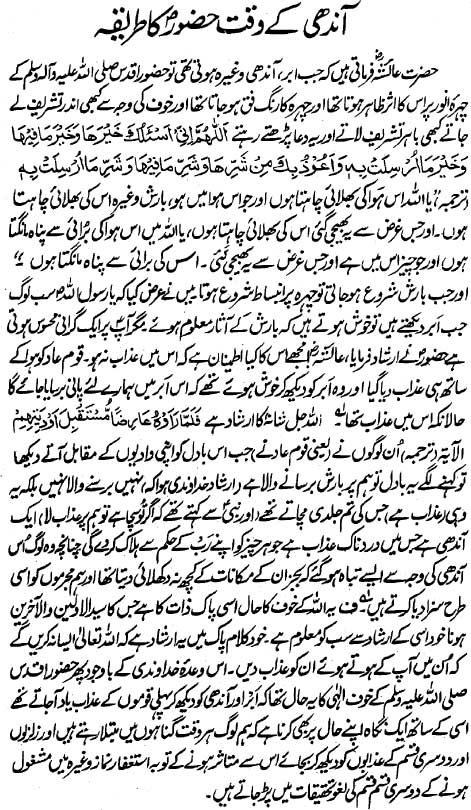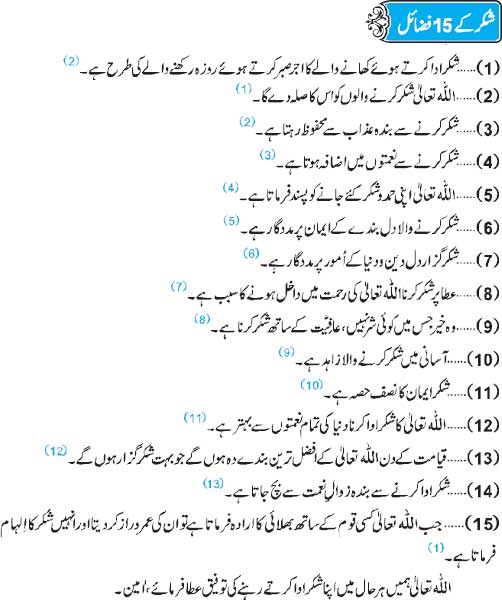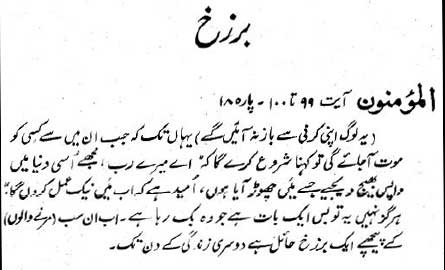
Keeping Good Company
One of the most important things we must do, which sadly many people neglect, is that we should avoid bad company. People, we should avoid taking as friends those who speak too freely, who miss Salah, who do not dress modestly, who backbite, slander, etc.
The company of such people is poison; just even sitting and talking with them will lead one to commit sins. Just as a person who sits for a long time with a perfume seller begins to smell nice, and a person who sits by a gutter cleaner begins to smell awful, similarly a person who spends time in the company of the wicked eventually gets affected badly by them.
Rather, we should seek out pious friends who fear Allah taala and who have the qualities of humility, charity, compassion, modesty, and knowledge. If we sit with them we will always benefit and they will be a means for us to get closer to Allah taala!
The Prophet (saws) said, “The case of the good companion and the bad companion is like that of the seller of musk and the blower of the bellows (iron-smith). As for the seller of musk, he will either give you some of the musk, or you will purchase some from him, or at least you will come away having experienced its good smell. Whereas the blower of the bellows will either burn your clothing or at least you will come away having experienced its repugnant smell.” [Al-Bukhaaree and Muslim]
Remember: “All friends will be enemies of one another on that Day (Day of Judgment) except those of the virtuous.” (al-Qur’an 43:67)
Hawadis O Masaib

by Mufti Muneeb Ur Rehman
Building A Close Relationship With The Qur’an
Recite the Holy Qur’an as much as we can for It will come as an intercessor for its reciter’ on the Day of Judgement [Muslim]
Learn the Qur’an and recite it, because the example of one who learns the Qur’an, reads it and recites it in Tahajjud is like an open bag full of musk whose fragrance permeates the entire place. And the person who has learnt the Qur’an but sleeps while the Qur’an is in the heart is like a bag full of musk but with its mouth closed.
Virtues of reciting the Qur’an
“Whoever reads a letter from the Book of Allah will receive a hasanah (good deed) from it (i.e. his recitation), and the hasanah is multiplied by ten. I do not say that Alif-Laam-Meem is (considered as) a letter, rather Alif is a letter, Laam is a letter, and Meem is a letter.” [At-Tirmidhi, Ad-Darimi]
“There is no envy (acceptable) except in two (cases): a person whom Allah has given the Qur’an and recites it throughout the night and throughout the day. And a person whom Allah has given wealth, that he gives out throughout the night and throughout the day.” [Al-Bukhari and Muslim]
It was narrated that Abdullah ibn Mas’ud said: Whoever reads Tabarakallahi Biyadihil Mulk [i.e. Surah al-Mulk] every night, Allah will protect him from the torment of the grave. At the time of the Messenger of Allah (Peace be upon him) we used to call it al-mani’ah (that which protects). In the Book of Allah, it is a surah which, whoever recites it every night has done very well. (an-Nasa’i)
Abdullah Ibn ‘Abbas and Anas Ibn Malik (Ra) reported that the Prophet (Peace be upon him) said, ‘Whoever recited Surah Zilzilah (99) would get the reward of reciting half the Qur’an. Whoever recited Surah al Kaafirun (109) would get a reward as if reading a quarter of the Qur’an. Whoever recited Surah al Ikhlas (112) would get a reward as if reading one-third of the Qur’an’. (At-Tirmidhi 2818/A)
Reading, understanding, and implementing the Qur’an in our daily lives
The virtues of reciting the Qur’an are too numerous to list. In order to get closer to Allah, we need to recite the Qur’an, understand it and implement it in our daily lives.
We should make a target of reading at least a chapter a day. If one can’t manage that then at least half a chapter. If one still can’t manage that then recite at least a quarter of a chapter or even a page a day. However much we can manage we should try to recite each day with its meanings and implement what we learn into our daily lives.
Reading a little each day is better than reciting a lot once in a while. We should build a close relationship with the Qur’an which is in fact building a close relationship with Allah!
“Verily Allah raises nations by this book (the Qur’an) and puts down (i.e. destroys) others by it.” [Muslim]
Aandhi Kay Waqt Hazoor PBUH Ka Tarika

Calling Upon Allah In Dua (Supplication)
Allah the most compassionate says in the Holy Quran, “Call on Me. I will answer your prayer, but those who are too arrogant to serve Me will surely find themselves humiliated in Hell” (40:60).
Allah the Exalted, has said: “And your Lord says: Pray unto me: and I will hear your prayer” (Quran 40:60),
“Call upon your Lord humbly and in secret” (Quran 7:55),
“When My servants question thee concerning Me, I am indeed close (to them): I listen to the prayer of every suppliant when he calleth on Me” (Quran 2:186),
“Is not He (best) who listens to the (soul) distressed when it calls on Him, and who relieves its suffering.” (Quran 27:62)
Dua’s are never wasted
Aisha radhiallaahu anha said, “No believer makes Dua and it is wasted. Either it is granted here in this world or deposited for him in the Hereafter as long as he does not get frustrated.”
Allah’s anger at those who don’t make dua
In fact, it is even wrong to never make Dua, “Whosoever does not supplicate to Allah, He will be angry with Him.” [Saheeh Jaami`as-Sagheer #2414]
Dua is a weapon for the believers
Rasullullah is reported to have said, “Dua is the weapon of a Muslim”.
Dua for ones brother in his absence
“The supplication that gets the quickest answer is the one made by one Muslim for another in his absence.” [Abu Daw’ud and Tirmidhi]
So let us build a close relationship with Allah by making much dua to him. He loves it when his slave calls upon him and it angers him if his slave does not call upon him.
Let us have full hope that our dua’s will be accepted and if you think they won’t they know Allah is keeping the rewards for you in the hereafter and those rewards are so great that one would wish that none of their duas were excepted in this world just so that one can gain all the rewards for their duas in the next world.
Shukar Kay Fazail

Zikr (Remembrance of Allah) And Glorification Of Allah
“…Verily, in the remembrance of Allah do hearts find rest.” (13:28)
Remembrance of Allah indeed is the greatest virtue. (29:46).
O ye who believe, remember Allah much. And glorify Him morning and evening (33:42-43)
Remembrance of Allah is the foundation of all good deeds. Whoever succeeds in it is blessed with the close friendship of Allah. That is why the Prophet, peace be upon him, used to make remembrance of Allah at all times. When a man complained, “The laws of Islam are too heavy for me, so tell me something that I can easily follow,” the Prophet told him, “Let your tongue be always busy with the remembrance of Allah.” [Ahmad].
Remembrance of Allah the best of deeds
The Prophet, peace be upon him, would often tell his Companions, “Shall I tell you about the best of deeds, the purest in the sight of your Lord, about the one that is of the highest order and is far better for you than spending gold and silver, even better for you than meeting your enemies in the battlefield where you strike at their necks and they at yours?” The Companions replied, “Yes, O Messenger of Allah!” The Prophet, peace be upon him, said, “Remembrance of Allah.” (Tirmidhi,Ahmad)
Abu Musa Al-Ash`ari (May Allah be pleased with him) reported: The Prophet (PBUH) said, “The similitude of one who remembers his Rubb and one who does not remember Him, is like that of the living and the dead.” [Al-Bukhari and Muslim].
Zikr can be done anywhere and anytime
A person may ask, ‘How can we do Zikr all the time whilst we have so many things to do in life such as we go to work, feed the family, pay bills, etc.? Well, the answer to this is that, firstly, it is the Sunnah of Allah’s Messenger to work and feed the family which is rewarded by Allah and, secondly, that when a person is working or at school or wherever a person maybe this does not mean that he should stop remembering Allah while he is working, while he is serving his customers or while he is programming his computer.
In fact, the heart of the believer should be attached to Allah’s remembrance throughout his day to day activities such that he protects himself from falling in love with the materials and temptations of this world and that his love for Allah and His Messenger becomes stronger and stronger as time goes by. When a person begins to remember Allah all the time it is then that he becomes conscious of his actions.
Remember: in a place where people are oblivious to dhikr, remembrance of Allah is like being steadfast in jihad when others are running away. (Targhib, p. 193, vol. 3 ref. Bazar and Tibrani)
“… And the men and the women who remember Allah much with their hearts and tongues. Allah has prepared for them forgiveness and a great reward (i.e., Jannah).” (33:35)
Barzakh

Nawafil Prayers (Supererogatory Prayers)
Allah says in Hadith Qudsi: ….and My slave keeps on coming closer to Me through performing Nawafil (voluntary deeds) until I love him, so I become his sense of hearing with which he hears, and his sense of sight with which he sees, and his hand with which he grips, and his leg with which he walks; and if he asks Me, I will give him, and if he asks My Protection, I will protect him…” [Bukhari]
A Source of Elevation for you
The Prophet (sallAllahu alayhi wasallam) said: “Ask (anything).” Rabi’ah said: “I ask of you to be your companion in paradise.” The Prophet said: “Anything else?” Rabi’ah said: “That is it.” The Prophet (sallAllahu alayhi wasallam) said to him: “Then help me by making many prostrations (i.e., supererogatory prayers).” [Muslim]
Tahajjud
Allah Most High said, “Establish worship at the going down of the sun until the dark of the night, and (the recital of) the Qur’an at dawn. Lo! (the recital of) the Qur’an at dawn is ever witnessed. And some part of the night awake for its recital, as voluntary worship for you. It may be that your Lord will raise you to a praised estate.” [Qur’an, 17: 78-79]
Abu Hurayra (Allah be pleased with him) reports that the Messenger of Allah (blessings and peace be upon him, his family, and companions) said, “The best prayer after the obligatory prayers is the night prayer.” [Muslim]
Abu Umama al-Bahili (Allah be pleased with him) reports that the Messenger of Allah (blessings and peace be upon him, his family, and companions) said, “Hold fast to night prayer, for it was the way of the righteous before you, a way of drawing closer to your Lord, an expiation for wrong deeds, and a shield from sin.” [Tirmidhi, and others] In some narrations, there is an addition, “And it repels sickness from the body.”
And because night vigil time is the best of times for voluntary worship and prayer, and the closest a servant is to his Lord.
So let us make the habit of reading as many Nawafil prayers as we can for more prayers means more prostrations and one is truly the closest to Allah in prostration.
….bow down in prostration and bring yourself the closer (to Allah).” (96:19)

